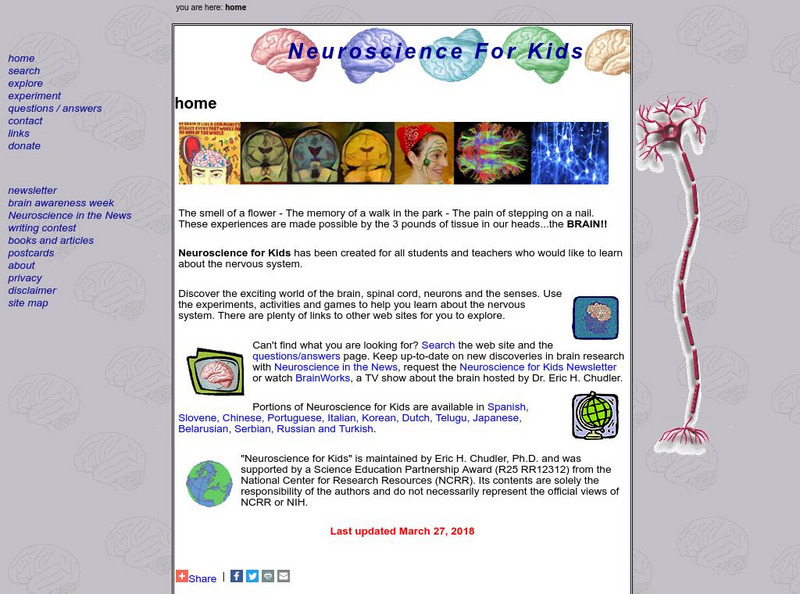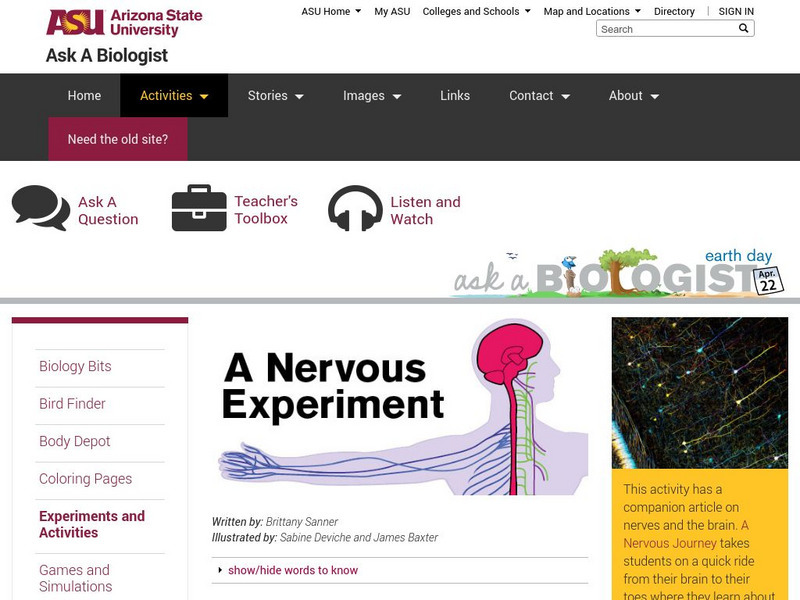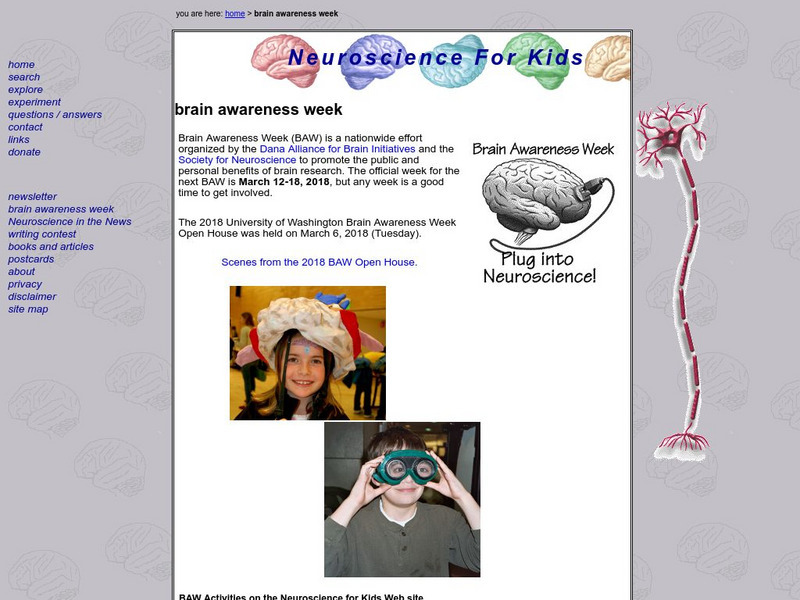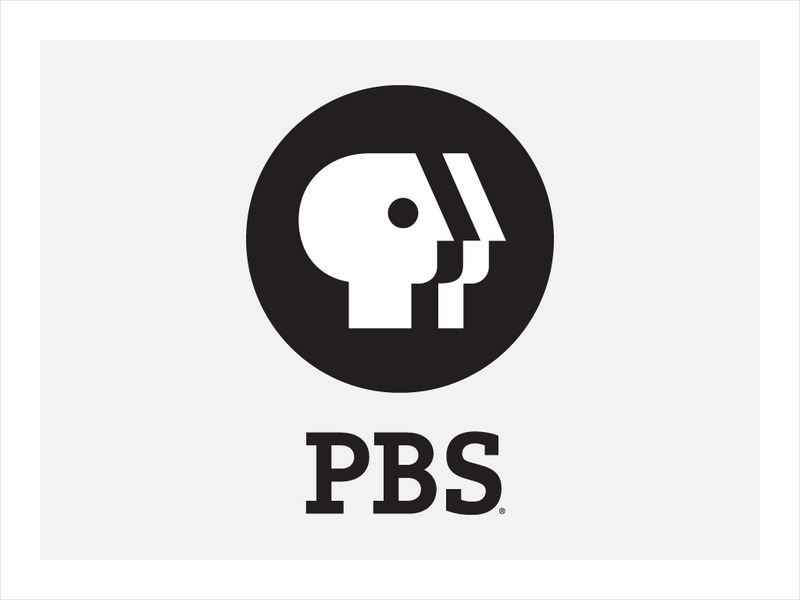TeachEngineering
Teach Engineering: A Tasty Experiment
Students conduct an experiment to determine whether or not the sense of smell is important to being able to recognize foods by taste. They do this by attempting to identify several different foods that have similar textures. For some of...
Howard Hughes Medical Institute
Hhmi: Biointeractive: The Virtual Neurophysiology Lab
Investigate the nervous system by looking at nerve cells in this virtual lab. This lab exercise allows students to experience a virtual dissection of a leech to use electronic equipment to explore the electrical activity of nerve cells....
University of Washington
University of Washington: Neuroscience for Kids
Created for all students and teachers who would like to learn more about the nervous system, this extensive University of Washington site offers information, resources, games, and activities galore. Offers dozens of links to related sites.
Arizona State University
Arizona State University School of Life Sciences: A Nervous Experiment
How do you know when your hand touches something? How do you know if something brushes against your shoulder? Think about your fingertip, arm, and back. In which of these places might your nerves be closer together? Review the concept of...
Other
On Science: Addicting Kids to Nicotine
Summarizing research found at the Mayo Clinic, this article explains why kids, who have only smoked a few cigarettes, "experience the same symptoms of nicotine addiction as adults who smoke heavily." Learn about how nicotine affects the...
University of Washington
The Senses
This site has a collection of learning activities, games, experiments, and lesson plans on the five senses. Organized by grade level and topic, this site is packed with an assortment of interactive and engaging activities, that would...
University of Washington
Neuroscience for Kids: Brain Awareness Week
Although this site is for Brain Awareness Week, the many hyperlinks on the site are very worthwhile in the study of neuroscience. Be sure to check out the many activities on the experiments and activities page.
Johns Hopkins University
New Horizons for Learning: Embryological Development
In this article, "Dr. Scheibel tells the fascinating story of how the brain develops in human beings from conception to birth. He makes clear that this complex, rapidly developing process is affected continually by the environment in...
PBS
Pbs Teachers: Changing Your Mind: Increasing Brainpower
Investigate the brain and it's connections - the number of possible routes along which a brain message might travel - by solving and creating geometric progressions. Conduct an experiment to learn about stimulus and response.
PBS
Pbs Teachers: Scientific American: The Wonder Pill: Placebo 1
Investigate how the brain can be fooled into incorrectly processing sensory information. Conduct an experiment to fool someone into thinking you've touched his or her hand.
PBS
Pbs Teachers: Scientific American: The Wonder Pill: Placebo 2
Identify the physiology of how a placebo affects the brain through "ritual expectations." Perform an experiment to explore how the manner in which a ritual is presented may affect the outcome of its success.
Other
Health Talk Online: Chronic Pain
This comprehensive resource contains individual video interviews with medical professionals and a number of people who have experienced chronic pain. What is chronic pain? What different approaches are used to manage pain? What type of...
Middle School Science
Lesson Plan: Earthworm Dissection
In this lesson plan site, you will "Learn the external and internal anatomy of the earthworm, understand the structure and function of external and internal organs, know the digestive, circulatory, reproductive, and nervous system, and...
Treehut
Suzy's World: Brain
Use this fact sheet to find out how your brain actually works and try an experiment to tease your brain.
Treehut
Suzy's World: Touch
At this site find out how you can feel hot and cold and try this experiment using your sensory nerves.
National Institutes of Health
National Library of Medicine: Electricity, Frankenstein, & the Spark of Life
Using an online exhibition, investigate how Mary Shelley's horror science fiction story, Frankenstein, reflects the knowledge and studies of electricity, and how those fictional ideas are used in modern medicine.











